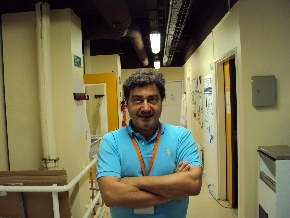报告题目:The cellular stress response as an efficient therapeutic target for PDAC
报告时间:2024年10月28日 15:00-17:00
报告地点:中国药科大学江宁校区学院实验楼121会议室
报 告 人:Juan Iovanna研究员
主 持 人:刘潇璇 教授
报告人简介:

Dr.Juan Iovanna graduated from the University of BuenosAires. He is the Research Director of Exceptional Class at INSERM in France, a Researcher at the Paoli Calmettes Institute in Marseille, the Deputy Director of the Cancer Research Center of Marseille (CRCM). His entire scientific career has been dedicated to advancing knowledge in pancreatic cancer biology and developing pancreatic cancer therapies: including: i) investigation of stress response proteins in pancreatic cancer and their potential as therapeutic targets; ii) explorating inter- and intratumoral heterogeneity; iii) developing predictive signatures for drug response iv) developing nanoparticles for pancreatic tumors treatment.
报告摘要:
Stress induces a response that enables cancer cells to adapt and survive, facilitating tumor progression. Inhibiting this stress response may be possible to prevent cellular adaptation, leading to the death of transformed cells and the halt of tumor progression. To identify the critical stress response mechanism essential for tumor cell survival, we adopted a systematic approach in the absence of a solid rationale. The stress protein NUPR1, which is markedly activated in all cancer cells, emerges as a promising therapeutic target for impeding tumor growth. Our research indicates that NUPR1 plays pivotal roles in anti-tumor activity, resistance, and transformation through processes known as hyperPARylation, SUMOylation, and stress granules formation respectively. However, traditional drugs are not suitable for targeting NUPR1 due to its disordered structure. So, we devised an advanced screening method utilizing fluorescence thermal denaturation to discover an inhibitor named ZZW-115. This inhibitor could disrupt aggregation of NUPR1 with itself or other macromolecules, thereby interfering with pathways critical for survival and proliferation of cancer cell.


